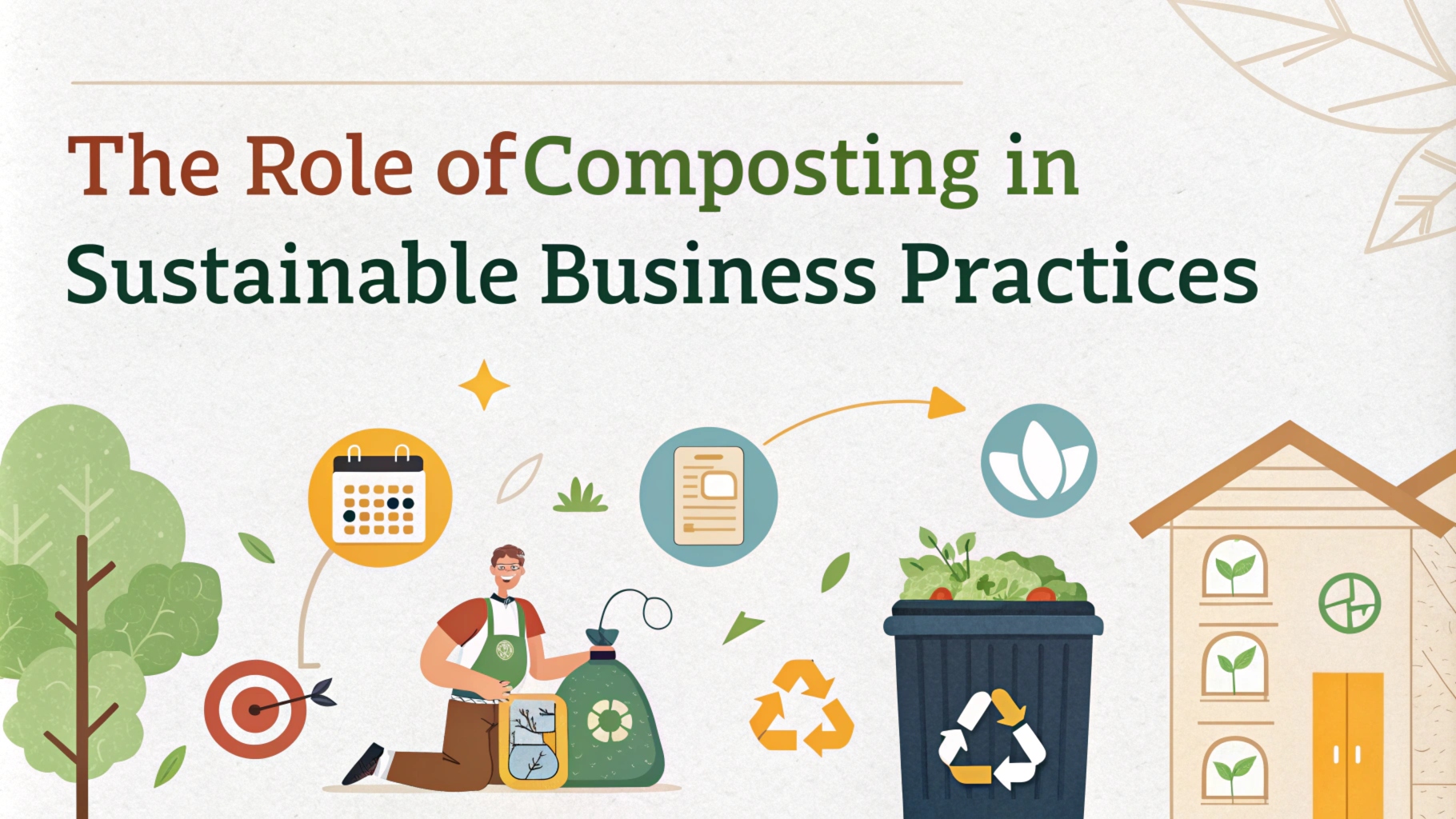As the world increasingly prioritizes sustainability, businesses are seeking innovative ways to reduce their environmental impact. One effective strategy that has gained traction is composting. This natural process not only helps in waste management but also contributes significantly to sustainable business practices. In this article, we will explore the role of composting in sustainable business operations, its benefits, and how companies can effectively implement composting programs.
Understanding Composting
Composting is the process of decomposing organic waste, such as food scraps, yard waste, and paper products, into a nutrient-rich soil amendment known as compost. This process involves microorganisms breaking down organic matter, resulting in a valuable resource that can enhance soil health and support plant growth.
Types of Composting
-
Aerobic Composting: This method requires oxygen and is commonly used in backyard composting. It involves turning the compost pile to aerate it, promoting faster decomposition.
-
Anaerobic Composting: This process occurs without oxygen and is typically slower. It is often used in commercial composting facilities.
-
Vermicomposting: This method utilizes worms to break down organic waste. It’s an effective way to compost in smaller spaces and produces high-quality compost.
The Benefits of Composting for Businesses
1. Waste Reduction
One of the most significant benefits of composting is its ability to reduce waste sent to landfills. By diverting organic waste from the waste stream, businesses can minimize their environmental footprint and contribute to a circular economy. This reduction in waste also translates to lower disposal costs.
2. Enhanced Soil Health
Compost enriches soil, improves its structure, and promotes healthy plant growth. Businesses involved in agriculture, landscaping, or gardening can benefit from using compost as a natural fertilizer, reducing the need for chemical fertilizers that can harm the environment.
3. Brand Reputation and Customer Loyalty
Consumers are increasingly favoring brands that demonstrate a commitment to sustainability. By adopting composting practices, businesses can enhance their brand image, attract eco-conscious customers, and foster loyalty among existing clients. Transparency about sustainable practices can also build trust with consumers.
4. Compliance and Incentives
Many regions are implementing regulations aimed at reducing organic waste in landfills. By adopting composting practices, businesses can stay ahead of regulations and potentially qualify for incentives or grants aimed at promoting sustainability.
5. Educational Opportunities
Implementing a composting program can serve as an educational tool for employees and customers. Businesses can promote awareness about waste management and sustainability, fostering a culture of environmental responsibility within their organization.
How to Implement Composting in Your Business
1. Assess Your Waste Stream
Begin by evaluating the types and amounts of organic waste your business generates. This assessment will help identify the best composting method and the resources needed for implementation.
2. Choose a Composting Method
Select a composting method that aligns with your business size and capabilities. For small businesses, backyard composting or vermicomposting may be suitable, while larger organizations might consider partnering with a commercial composting service.
3. Educate Employees
Training and educating employees about the importance of composting and how to participate in the program are crucial for success. Provide clear guidelines on what materials can be composted and how to maintain composting systems.
4. Set Up a Composting System
Establish a designated area for composting within your business premises. Ensure that it is easily accessible for employees and clearly marked to avoid contamination. If using a commercial service, coordinate with them on collection schedules and procedures.
5. Monitor and Adjust
Regularly assess the effectiveness of your composting program. Gather feedback from employees, track waste reduction, and adjust the program as needed to improve efficiency and participation.
Composting plays a vital role in sustainable business practices by reducing waste, enhancing soil health, and improving brand reputation. As businesses face increasing pressure to adopt environmentally responsible practices, composting offers a practical and impactful solution. By implementing a composting program, companies can contribute to a more sustainable future while reaping the benefits of reduced waste and increased customer loyalty.
At GreenFuture.sbs, we are dedicated to helping businesses implement sustainable practices, including composting. Our resources and expert guidance can assist you in establishing a successful composting program tailored to your specific needs. Together, we can create a positive impact on the environment and foster a culture of sustainability in the business world.
